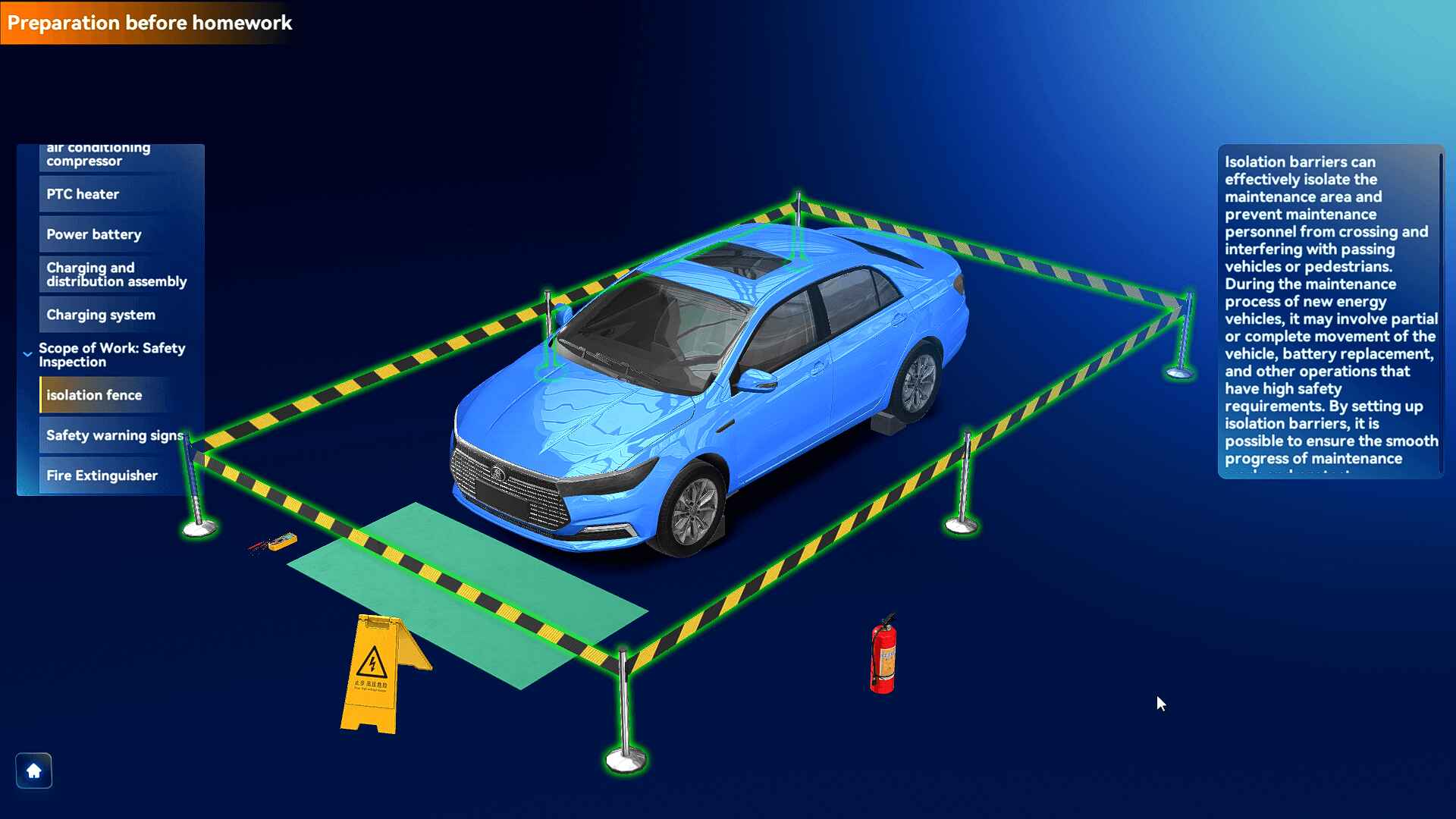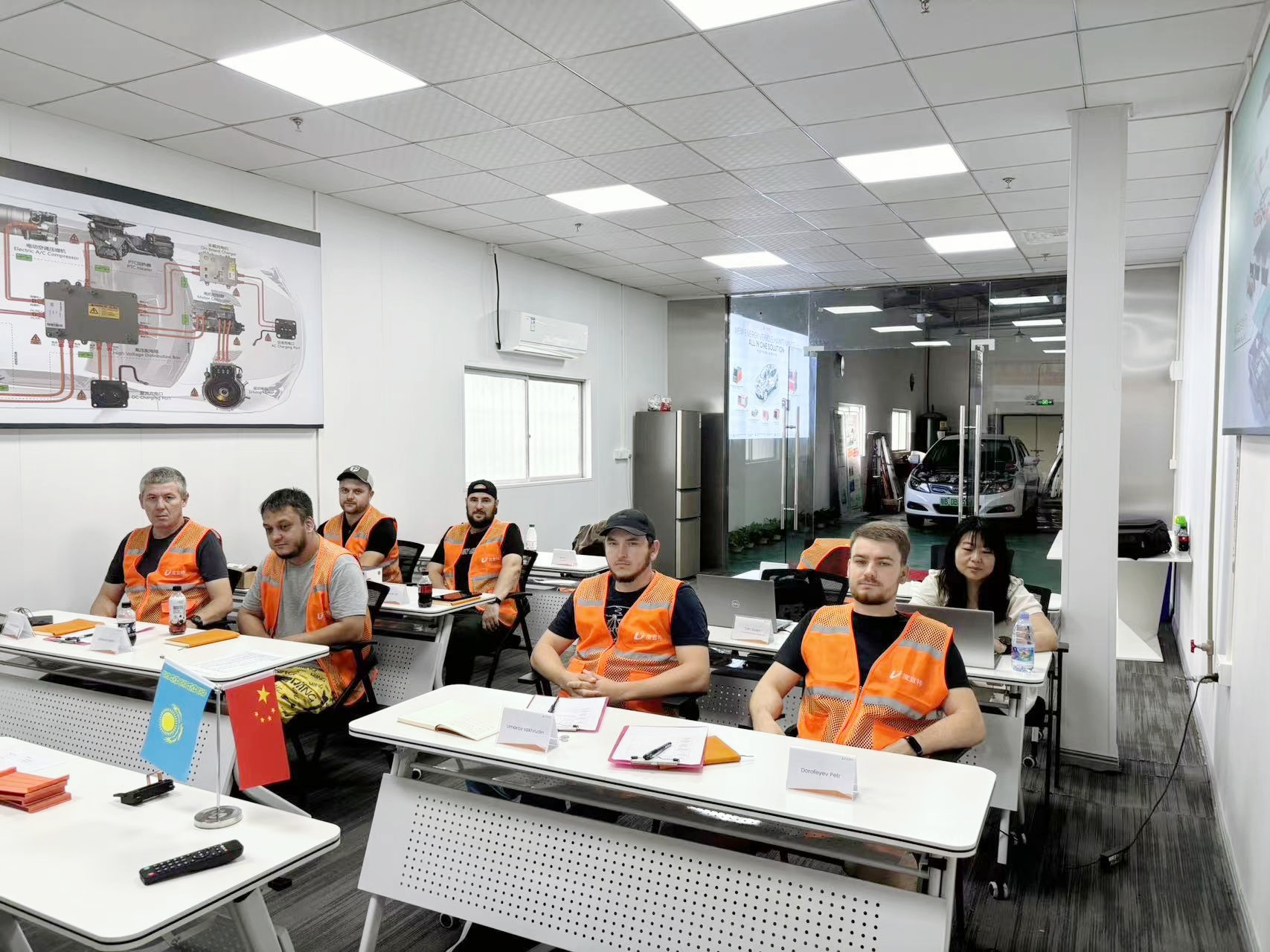The automotive world is shifting fast. Electric vehicles (EVs) are not just a trend — they’re the future. This rapid change means automotive training programs must evolve quickly to keep pace. If you’re involved in automotive education or workforce development, understanding how EV training works and why it matters is crucial.
In this article, we’ll break down the key points of EV training programs, why they’re important, and how you can make the most of them — especially with hands-on equipment from Richter that truly bridges theory and real-world practice.
Table of Contents
Why Automotive Training Programs for electric vehicle Matter More Than Ever
The rise of EVs has brought major shifts to the automotive repair and manufacturing sectors. Traditional internal combustion engine (ICE) skills aren’t enough anymore. High-voltage battery systems, electric motors, and complex electronics demand new expertise.
Governments and industries are investing heavily in workforce development to fill this gap. For example, the U.S. Department of Energy has invested $23.6 million to train battery technicians, while European initiatives aim to train 800,000 workers by 2025 to meet EV demand .
But training isn’t just about classroom lectures. Hands-on experience with real systems and tools is essential. That’s where Richter’s line of automotive training equipment shines, providing realistic simulation and diagnostics that prepare technicians for actual EV work.
Key Components of Automotive Training Programs for EVs
Let’s break down the core parts of a solid EV training program — the building blocks that ensure technicians can handle today’s electric cars.
1. High-Voltage System Safety and Maintenance
One of the biggest concerns with EVs is safely handling high-voltage batteries and wiring. Programs include detailed safety protocols for dismantling, reassembling, and testing these systems.
At Richter, we offer dedicated trainers like the Electric Vehicle Original High-Voltage Control Box Assembly Disassembly and Testing System, which let students learn high-voltage safety hands-on.
2. Battery Technology and Power Management
Battery packs are the heart of EVs. Training covers battery chemistry basics, battery management systems (BMS), charging/discharging processes, and fault diagnosis.
Richter’s Power Battery Assembly and Testing Technology Training System gives learners practical experience assembling and troubleshooting battery modules, enhancing understanding of complex battery management.
3. Electric Drive Systems
Understanding electric motors, inverters, and controllers is essential. Technicians learn how to disassemble, maintain, and diagnose these components.
Our Electric Vehicle Drive Motor Disassembly Trainers provide a hands-on platform for mastering motor mechanics, something traditional programs often lack.
4. Diagnostics and Fault Finding
Modern EVs are loaded with sensors and software. Training focuses on using diagnostic tools and software to identify faults accurately.
Richter offers the Electric Vehicle Fault Diagnosis Training Software, combining real data with simulation to train technicians in pinpointing issues quickly.

What Real-World Training Looks Like: Case Studies
To illustrate, let’s look at some examples from established programs around the world.
| Institution | Program Highlights | Training Focus | Source |
|---|---|---|---|
| Los Angeles Trade-Tech College (LATTC) | Hybrid and EV systems from basic to advanced | Safety, diagnostics, battery, drive systems | lattc |
| Universal Technical Institute (UTI) | High-voltage safety, component servicing | Hands-on labs, industry certification | uti |
| Legacy EV (Custom Curriculum) | Modular courses for K-12 to higher ed | EV fundamentals, innovation in EV design | legacye |
| EV Technician Program | Interactive virtual labs, simulation software | Virtual diagnostics and troubleshooting | evtech |
All these programs emphasize combining theory with practice. This blend ensures trainees are confident and job-ready.
The Pain Points: Why Training Without Real Tools Falls Short
Many EV / automotive training programs struggle because they rely heavily on theory or outdated equipment. But EV maintenance is hands-on by nature — the wiring, batteries, and control systems need real-world exposure.
Common training pain points:
- Lack of practical experience: No hands-on work with real EV components means technicians are unprepared for the job.
- Safety risks: Improper training on high-voltage systems leads to dangerous mistakes.
- Rapid technology evolution: Training content becomes obsolete quickly without adaptable equipment.
Richter addresses these by providing modular, up-to-date training equipment designed for evolving EV tech. Our trainers simulate actual vehicle components closely, making learning safer and more effective.
Why Hands-On Training Equipment From Richter Makes a Difference
You want your students or workforce to learn on equipment that mirrors real-world vehicles, right? That’s the Richter advantage. Here’s why:
- Authentic Systems: We replicate real EV components like high-voltage control boxes, battery modules, drive motors, and chassis systems.
- Safety First: Our trainers include safety features and insulation to protect learners while they explore high-voltage systems.
- Versatility: Whether you train beginners or advanced technicians, our wide product range covers every learning stage.
- Diagnostic Software: Simulation software lets students troubleshoot virtual faults, building sharp diagnostic skills before touching real cars.
- Comprehensive Tools: From disassembly to fault finding, Richter equips training centers with everything needed to build top-tier EV technicians.
Check out our full lineup of Electric Vehicle and Hybrid Trainers and Simulation Training Software for more details.
How Industry Trends Are Driving Training Demand
The auto sector is scrambling to reskill technicians for the EV revolution. Consider these facts:
- Huge government investment: The U.S. DOE’s $23.6 million “Battery Workforce Challenge” fund and Europe’s massive EV worker training goals prove this is a priority.
- Manufacturer programs: Brands like BMW and Jaguar Land Rover run specialized high-voltage system training for their employees.
- Talent shortage: The UK alone faces a shortfall of 3,000 EV-trained technicians by 2031, highlighting urgent market demand.
Training providers and companies must act now to fill this skills gap. Richter’s advanced training solutions help you lead the pack by producing technicians ready for today and tomorrow’s EV challenges.
Maximizing ROI With Effective EV / automotive Training Programs
Investing in quality training equipment and programs saves money in the long run. Why?
- Lower accident and repair costs: Proper safety and diagnostic training reduce workplace injuries and costly vehicle damage.
- Faster repair times: Skilled technicians diagnose and fix EVs quicker, reducing downtime.
- Better employee retention: Training opportunities keep staff motivated and loyal.
- Compliance with regulations: Training meets government and industry standards, avoiding penalties.
By partnering with Richter, you get cost-effective equipment designed for real-world training outcomes, maximizing your investment.
Conclusion: The Road Ahead for EV Training
The shift to electric vehicles is reshaping automotive training forever. To stay competitive,EV/automotive training programs must deliver hands-on, up-to-date, and practical learning experiences. Richter’s comprehensive range of EV trainers and diagnostic software is designed to meet this need.
Whether you run a technical school, a training center, or an OEM workshop, Richter helps you build a future-ready workforce. With our equipment, your trainees won’t just learn theory — they’ll master the real skills the industry demands.
Explore our full range of automotive training equipment today, and get ready to drive the future of electric vehicle education.


